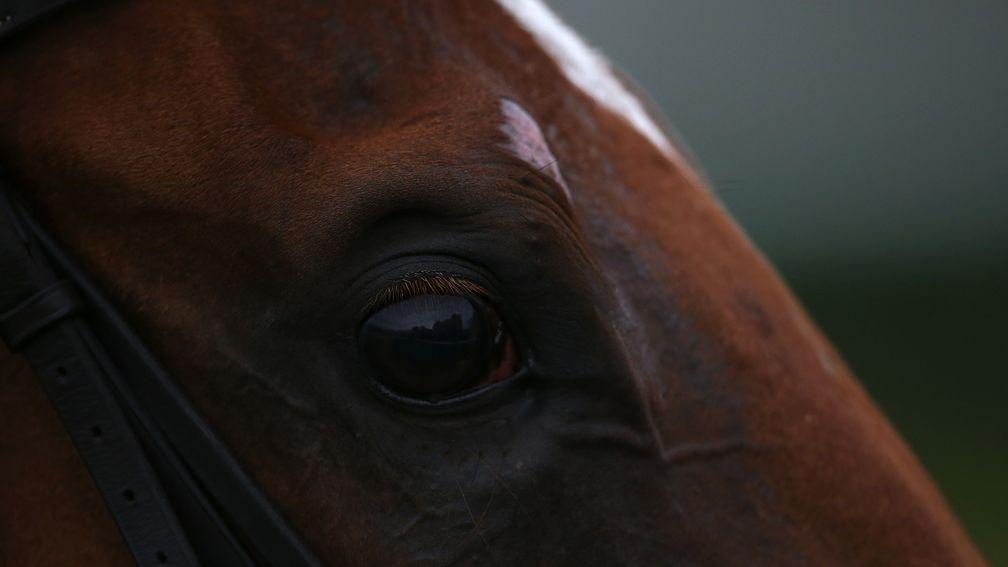International codes of practice on equine disease issued for 2020
Horserace Betting Levy Board published the 42nd edition on Monday

The Horserace Betting Levy Board (HBLB) has published the 42nd edition of the codes of practice on equine disease, in preparation for this year's equine breeding season. These are available online only at codes.hblb.org.uk.
The codes have been retitled as international to recognise that they have been adopted by numerous countries that have reproduced them, in translated form, as the basis for their own, national guidelines. The codes are therefore truly international in application.
The online version may be accessed as a full document or as separate sections. It may be downloaded in PDF format for printing or viewing offline.
The updated free app, EquiBioSafe, which covers both breeding and horses in training will be released shortly on iOS and Android.
Applying to all breeds of horse and pony, and to both natural mating and AI, the codes are an essential guide for the prevention and control of equine diseases which represent a potential major threat to equine breeding.
The codes of practice cover the following topics:
- Contagious equine metritis (CEM)
- Equine viral arteritis (EVA)
- Equine herpesvirus (EHV)
- Equine coital exanthema (ECE)
- Equine infectious anaemia (EIA)
- Dourine
- Guidelines on equine influenza
- Guidelines on strangles
- Guidelines on artificial insemination
For each disease there are sections which describe transmission and clinical signs, as well as advice on prevention, diagnosis and control of infection. The codes explain the notification requirements that apply for the four diseases that are notifiable by law: CEM, EVA, EIA and dourine.
The codes of practice are reviewed annually by an expert sub-committee of HBLB's veterinary advisory committee. The sub-committee includes representatives of:
- Thoroughbred breeders in Britain, Ireland, France, Germany and Italy
- The non-thoroughbred sector
- Department for Environment, Food and Rural Affairs (Defra)
- Equine veterinary practitioners
- Scientists expert in infectious disease
Rob van Pelt, chairman of the codes of practice sub-committee, said: "The 2020 version includes a major new section giving guidelines on how to recognise, diagnose and manage equine influenza. This reflects the experience of the 2019 outbreak.
"The revisions for this year also include additions to the EVA section in the light of the disease occurring in a few non-thoroughbred stallions in 2019; extra detail on the swabbing protocol for CEM; and updates to Defra contact arrangements.
"We all learned a lot from the 2019 disease incidents. The impact of the flu outbreak on horse welfare, on the national racing calendar and on the competition and leisure programme for all horses, thoroughbreds and non-thoroughbreds alike, was very testing.
"They served to remind us of the relevance of vaccination, where available, in mitigating disease effects and also the importance of swift and proportionate action to manage infectious disease.
"This is what the codes are for. Infectious disease is an ever-present risk and it's in all our interests to work together and comply with the recommendations in the codes."
For further information, contact Annie Dodd, HBLB grants manager, by email at annie.dodd@hblb.org.uk or by direct telephone on 020 7504 4014.
If you enjoyed this, you should read:
David Ashby Underwriting formed after buyout of MS Amlin equine book
Henrietta Knight back for more as mystery owner buys £370,000 Doncaster top lot
Pinhookers go panning for gold as Blue Bresil colt tops January Sale opener
Published on 28 January 2020inNews
Last updated 13:03, 28 January 2020
- ‘It’s make or break’ – pinhookers look to buck the market trend as breeze-up season rolls into Deauville
- Half-brother to Brighterdaysahead, Mighty Potter and Caldwell Potter leads Tattersalls Ireland Derby Sale catalogue
- Half-siblings to Ballyburn and Slade Steel among Goffs Arkle Sale entries
- Allee De Bercy gets first-season sire Hello Youmzain off on the road to success
- 'She will be missed by us all' - George Washington's only foal and black-type producer Date With Destiny dies aged 16
- ‘It’s make or break’ – pinhookers look to buck the market trend as breeze-up season rolls into Deauville
- Half-brother to Brighterdaysahead, Mighty Potter and Caldwell Potter leads Tattersalls Ireland Derby Sale catalogue
- Half-siblings to Ballyburn and Slade Steel among Goffs Arkle Sale entries
- Allee De Bercy gets first-season sire Hello Youmzain off on the road to success
- 'She will be missed by us all' - George Washington's only foal and black-type producer Date With Destiny dies aged 16